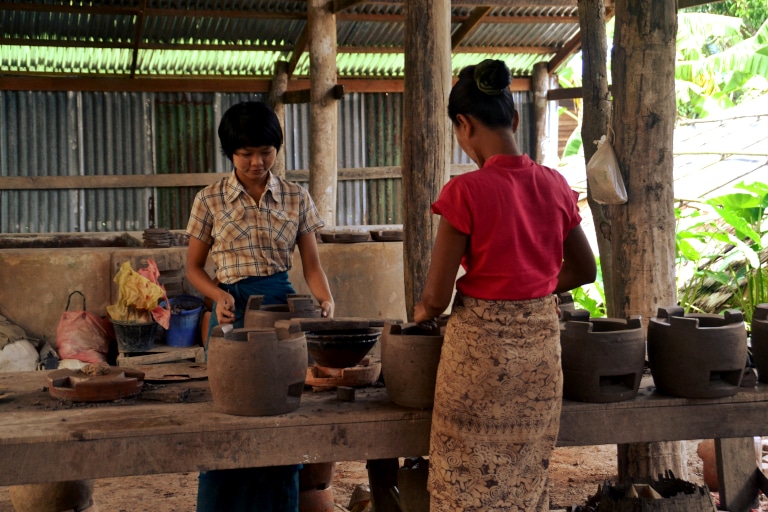Rural Energy Access for Communities and Households
Creation of a community-based social business for scaling up the distribution of sustainable energy solutions in remote rural villages in Myanmar (2018-2023)
Context and challenges
The Dry Zone in the center of Myanmar is home to 30% of the country’s household. Around 80% of Burmese households cook with wood on traditional fireplaces, thus putting great pressure on the forest resources contributing to the 2% annual deforestation rate. The region has low coverage of the national power grid, although the government is pushing for its expansion. Rural populations’ lack of access to modern quality energy and to sustainable energy solutions increases their vulnerability and severely constrains their socio-economic development. The use of biomass as the main source of energy is responsible for the strenuous work carried out by women as well as for respiratory diseases linked to exposure to harmful fumes.
Following participatory workshops with communities and women networks, Geres is working to expand the range of products accessible to families, namely solar home systems in non-grid-connected villages and energy-efficient appliances in grid-connected ones, as well as improved cookstoves, in order to increase the number of people with improved energy access and to disseminate even more high-quality sustainable solutions.

Objectives ans solutions
REACH project objectives are:
- Contribute to structuring an environment conducive to the dissemination of sustainable energy solutions by supporting the emergence of last-mile distributors and retailers, missing links to reach the most isolated villages
- Strengthening women’s entrepreneurship in the energy sector through the development of an innovative and inclusive distribution network, predominantly female, and building their capacity business and technical skills. The integration of women into the local economic fabric and their empowerment will allow the entrepreneurs to boost their livelihoods.
- Facilitate access to finance to ensure low-income households are capable of acquiring high-quality energy products. These products will improve the living conditions of rural households because they are safer, more cost-efficient in the long term and reduce the households’ strenuous chores, which affect disproportionately women. They will also reduce the pressure on Myanmar’s natural resources and reduce CO2
- Capitalize and disseminate the lessons learned to policy-makers and development institutions to guarantee the increase in access to sustainable energy solutions by the most vulnerable people.
Beneficiaries
- 10 women producers and suppliers of SED
- 10,000 isolated village households by 2021
- Local authorities in the intervention areas
- 40,000 indirect beneficiaries, including 10,000 children less exposed to toxic fumes
Partners
Technical partners
- Thazi Network
- Pollinate Energy
Financial partners
- AFD – French Development Agency
- European Union
- Fondation RAJA-Danièle Marcovici
- Synergie Solaire
WOULD YOU LIKE TO TAKE ACTION
AND SUPPORT WHAT WE DO?
Tell us who you are and find your means of action.
